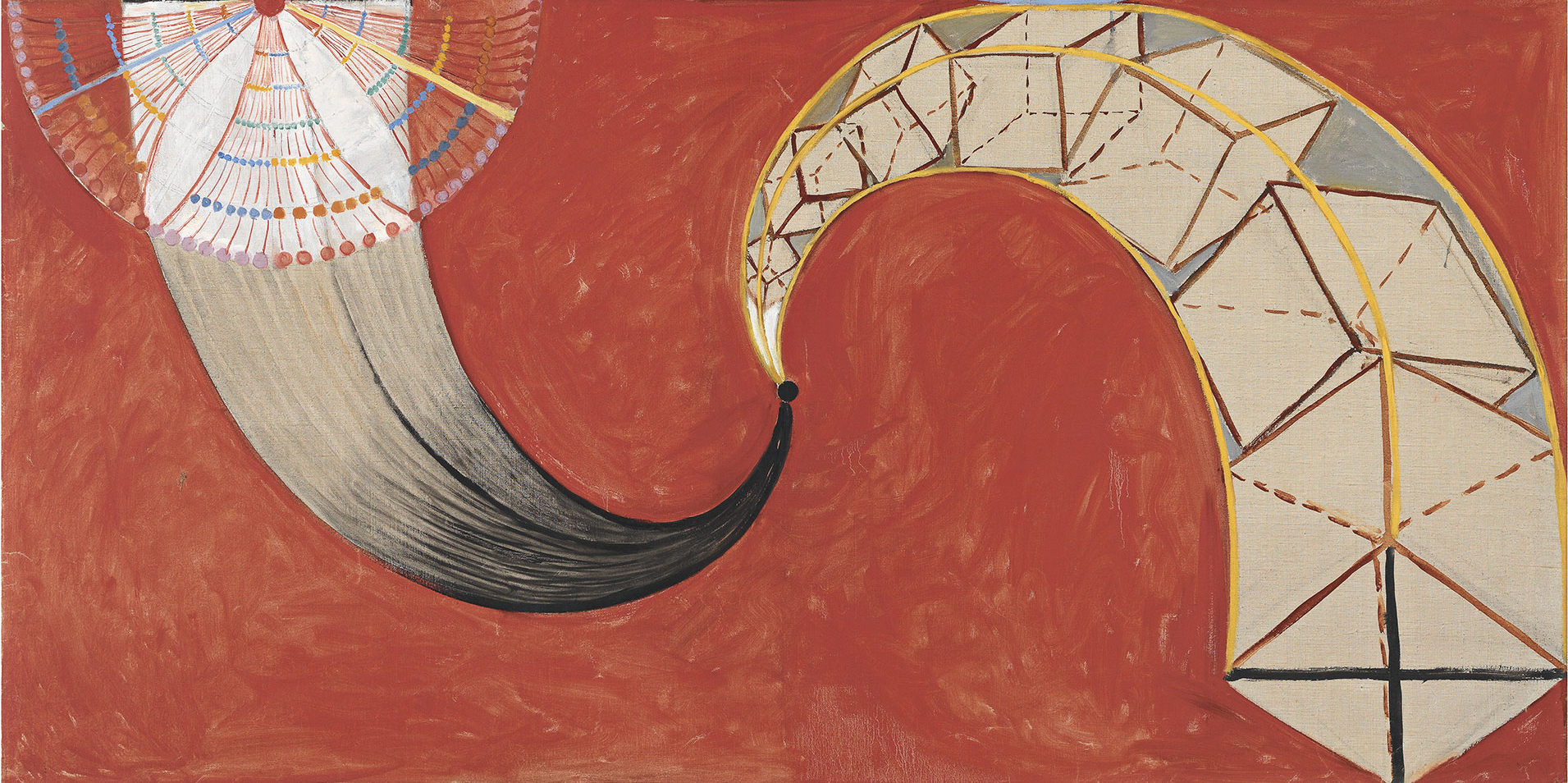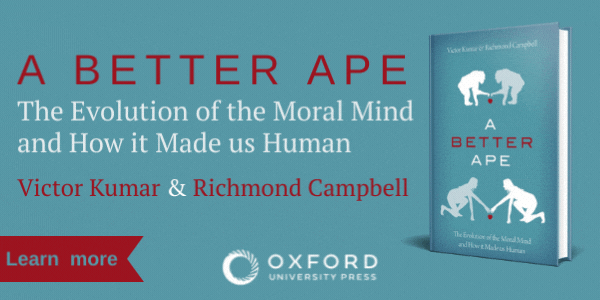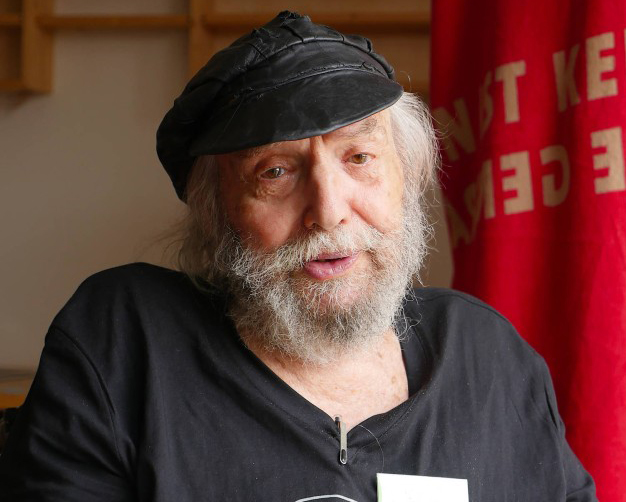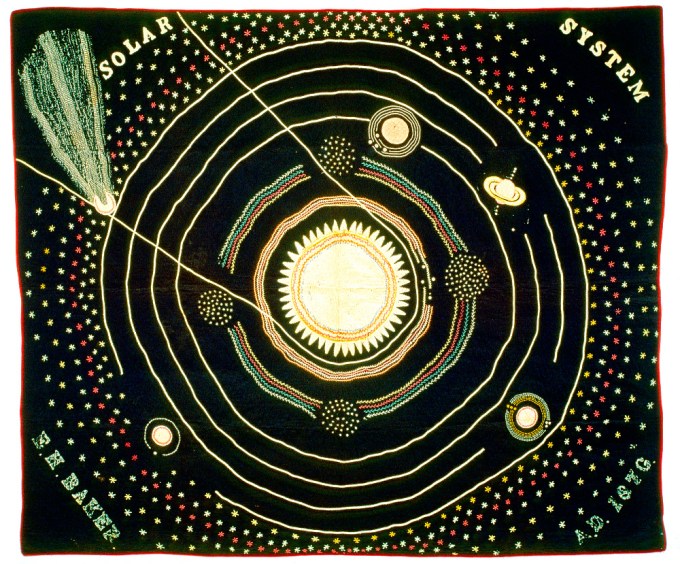Some of the examples of the sexist reception of the work of these women is remarkable:
Such sexism affected the subsequent recognition of these figures:

The reason for their exclusion is not because their work was private or non-academic:
The editors note some of these “lost voices” and how they’re excluded from the history of philosophy:

[detail of painting by Hilma af Klint]
Some respected histories of analytic philosophy mention no women at all…. Many assume that no women were involved in contemporary philosophy until the late 1940s or early 1950s, and discuss only a single female theoretical philosopher, such as Elizabeth Anscombe or Ruth Barcan Marcus, spending only a small part of a single page on her work (e.g. Soames, The Analytic Tradition, 1 page out of 657; Glock, What is Analytic Philosophy?, 1 page out of 292). Why, then, do so few philosophers read Ruth Barcan Marcus? Why do they read Martha Kneale only in the context of her joint book with her husband (Kneale and Kneale, Development of Logic), and know Alice Ambrose and Margaret Macdonald only for their editorial work on Wittgenstein’s writings (Ambrose, Wittgenstein’s Lectures)? Why have most of us never even heard the names of the other women featured in this Special Issue, Christine Ladd-Franklin, Olga Plümacher, Dorothy Wrinch, or Ayda Ignez Arruda?
Unlike the female philosophers from earlier periods in the history of philosophy, these women’s careers did not take place outside the public sphere. Nor are they neglected because their works are difficult to come by. Between the 1880s and 1940s, women published in Mind, Proceedings of the Aristotelian Society, the Journal of Symbolic Logic, and the Journal of Philosophy as well as writing widely distributed books.
Subsequent historians have often taken their cues from Russell and ignored Jones…
“Some of the women discussed in this Issue cannot be slotted easily into a history that did not include their ideas in the first place.”
While histories of contemporary philosophy tend to emphasize the philosophical significance of past positions in order to justifiably include them in that history, there is a problem with the shift in what counts as philosophically important. Given this, philosophers advocate a charitable approach: the so-called ‘principle of charity’ dictates that we must assume past philosophers have good reasons to hold to their positions. Such a principle is, however, differentially applied; because women philosophers were so heavily criticized, ridiculed and dismissed in their own lifetimes, particularly by male philosophers now deemed important to the perceived foundations of our discipline, there is a tendency to continue such treatment of women philosophers of this period. While the big male players were allowed to challenge and criticize their contemporaries, women who wrote critically are more likely to be marginalized in this history than taken seriously. There is also a tendency to try to find philosophical reasons rather than sexist ones for the ridicule and dismissal of female philosophers by their male contemporaries. When history writes out dissenting voices and different positions within a certain field, many already marginalized philosophers get completely obscured. Some of the women discussed in this Issue cannot be slotted easily into a history that did not include their ideas in the first place.
That’s from the introduction to the latest British Journal for the History of Philosophy, a special issue on “Lost Voices: Women in Philosophy 1870-1970,” edited by Sophia M. Connell (Birkbeck) and Frederique Janssen-Lauret (Manchester).
By listening only to those who were ‘in charge’ of that narrative at the time, like Russell, past sexism is reinforced in the present. One might look at this process as a sort of feedback loop of exclusion. Those who received the most attention when they wrote are now considered to be the most important philosophers and their opinions of their contemporaries are credited. Those dismissed by them at the time often continue to be ignored.
Constance Jones proposed a version of the sense-reference distinction in 1890… Although Frege, with his mathematical logic, made certain advances, the denotation-intension model which Jones (who was denied a thorough mathematical education as a girl) puts forward strikingly prefigures his ‘Über Sinn und Bedeutung’. But Russell, though aware of her work, refused to give her credit… and used outright sexist terms to dismiss her as “motherly, prissy, and utterly stupid.”
That sexism also informs our idea of what was philosophically important at the time, and the lens through which we, today, see—or fail to see—various figures:
You can read the whole introduction here, and check out the other articles (some of which are open access) here.
Part of the explanation, Connell and Janssen-Lauret write, is owed to a “feedback loop of exclusion.” The women philosophers faced sexism in their time, which led to their work being undervalued by contemporaries, which meant they weren’t discussed or adequately acknowledged in their time, and so were apparently not historically “significant” enough to be noticed by historians.
Victoria Welby, in her book What Is Meaning? set out a pioneering programme in the philosophy of language, considering language as a collection of context-sensitive, socially produced behaviours in light of the new evolutionary biology and the emerging science of psychology. C.S. Peirce wrote a review, in which he called her book one of “two really important works on logic” (the other was Russell’s Principles), as well as, on the very same page, “feminine” and “painfully weak”, exhorting “the male reader” to skip several chapters…





